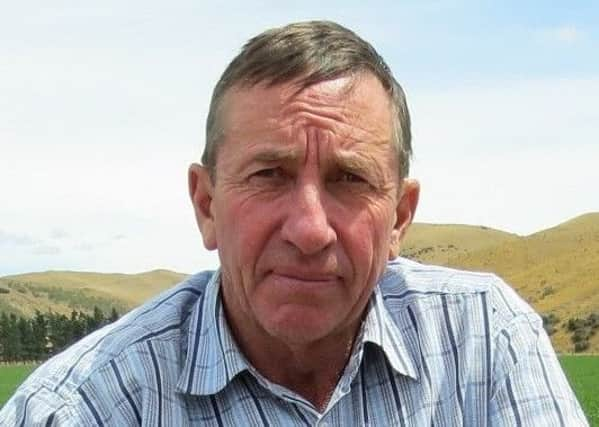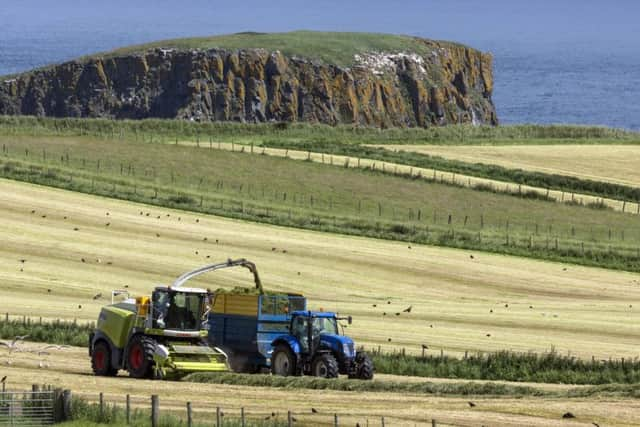Taking care of mental health


We must take more notice of not only our own health but the health and wellbeing of those around us.
We all need to be better at talking about our problems and become better at asking for help. There is no doubt the pressures of life and farming can sometimes be stressful, and stress, if left unresolved can lead to more serious issues. It is vital that you seek help, before a problem becomes a crisis.
Advertisement
Advertisement
In the farming community of Northern Ireland there is still a stigma attached to asking for help and talking about mental health. There remains a stereotypical image of men, one where they shouldn’t talk about how they are feeling or show any emotion and if they were to do so it would seem they are showing weakness. In turn they feel discouraged to talk about their feelings and are reluctant to seek help. The reality is that it is costing lives.


Although women are more likely to be diagnosed with a mental health illness than men it does not mean that men do not suffer mental ill health any less. People do not seek help for many reasons such as pride, the stigma attached to asking for help as many think they will be seen as a failure if they do, perhaps they hope the problem will just go away or they may not recognise that the symptoms they are experiencing could be a sign of poor mental health.
Sadly, men are more likely to take their own life by suicide than women. With men accounting for almost 92% of the agricultural labour force in Northern Ireland this is something which needs to change. That is why it is so important for everyone to be aware of the signs of poor mental health. Having good mental health isn’t just about the absence of a mental health illness it is about coping with everyday life and feeling good about yourself. Loss of appetite, feeling constantly low or anxious, thinking negative thoughts, easily irritated, difficulty concentrating, not enjoying life and finding day-to-day life difficult are just some of the signs of poor mental health.
If you are experiencing any of these symptoms it is important to speak to someone about how you are feeling. It is okay to say ‘I’m not okay,’ there is no shame or embarrassment in asking for help. It is important to seek help early on and not to leave it until the crisis is actually hitting home and impacting on your health and relationships in the family.
Advertisement
Advertisement
Living and working in the countryside further complicates matters. Farming can be a lonely occupation, working long hours alone and added pressures of debt and reduced income, animal health issues, increasing paperwork and being dependent on factors outside of your control can all lead to increased anxiety and stress. Often rural people live in isolated areas with little or no access to the support services available or to transport, which can all lead to increased feelings of loneliness and isolation.
We all have a responsibility to support farmers. Please take a moment to think about the people in your life, think about your family members, your friends and work colleagues? Have you noticed changes in their behaviour or attitudes? It can be difficult to talk to others about how they are feeling but it could be a life-saving conversation. Something as simple as “you don’t seem yourself lately, is everything alright?” can open the conversation. If you are worried about a family member or friend, do encourage them to seek help whether that is from their GP or a support organisation such as Rural Support. Rural Support is here on a confidential basis for anyone who wants to speak to someone about any concerns they may have.
If you or someone you know would benefit from speaking to a Rural Support volunteer please ring our helpline which is confidential and is available 9am-9pm, Monday to Friday (voicemail and support options available at all other times). The freephone helpline number is 0800 138 1678. All calls are confidential. Rural Support could help ease the burden of dealing with issues causing stress and help you to find a way forward.
- Rural Support and the Farming Community Network has organised a series of talks by the ‘Resilient Farmer’ Doug Avery, from New Zealand.
The talks are as follows:
Advertisement
Advertisement
Monday 7th October 2019, 7pm - Glenavon Hotel, Cookstown, Co. Tyrone
Tuesday 8th October 2019, 7pm - Mourne Country Hotel, Newry, Co. Down
Wednesday 9th October 2019, 7pm - Killyhevlin Hotel, Enniskillen, Co. Fermanagh
Thursday 10th October 2019, 7pm - Tullyglass Hotel, Ballymena, Co. Antrim
Get your tickets at www.resilientfarmertour.co.uk